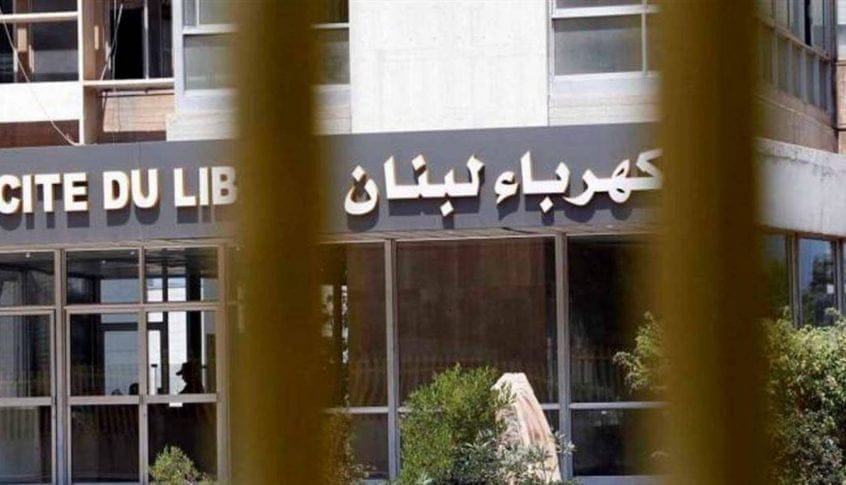الفيول موجود بكميات أكبر من حاجة مؤسسة الكهرباء: التغذية بالكهرباء في أدنى مستوياتها
لن تنقطع الكهرباء نتيجة نقص مخزون مادة «الغاز أويل»، كما حدث في نهاية أغسطس الماضي. إذ صرح وزير الطاقة وليد فياض بأن الوزارة قد زودت مؤسسة الكهرباء بالفيول. بمعنى آخر، ورغم التحديات التي تواجهها البلاد بسبب الحرب المفروضة من العدو الصهيوني، فإن إمدادات الوقود لمعامل الكهرباء مستمرة، وتفوق الكميات اللازمة لمستوى إنتاجها الحالي.
خلال شهر أكتوبر، من المتوقع أن يصل مخزون «الغاز أويل» اللازم لتشغيل معامل الزهراني ودير عمار إلى حوالي 100 ألف طن، وهو أعلى مستوى يمكن أن يبلغه المخزون. ومع ذلك، لم تتحسن ساعات التغذية، حيث لا تقوم المؤسسة بزيادة إنتاجها لأسباب غير معروفة.
يمكن الاستنتاج أن الحرب قد عطلت تنفيذ المرحلة الخامسة من خطة وزارة الطاقة والمياه لاستعادة 12 ساعة من التغذية اليومية. بدأت المرحلة في منتصف أغسطس، وتم إنجاز أربع مراحل منها، حيث عادت التغذية لـ4 ساعات يومياً، وعمل معمل الزهراني ودير عمار بقدرة تصل إلى 400 ميغاواط. ومع ذلك، كان من المفترض رفع إنتاج الطاقة إلى 800 ميغاواط في المرحلة الخامسة، مما يتطلب تشغيل المحركات العكسية في الذوق والجية.
وبالنظر إلى الوضع الحالي، يبدو أن مؤسسة الكهرباء تعمل كوسيط لتأمين الوقود اللازم لإنتاج الطاقة، في حين أن عملية رفع التغذية وتوزيعها بيد المؤسسة. وأكد فياض أن «مخزون المؤسسة من الوقود أكبر من حاجتها اليومية التي لا تزيد على 1600 طن». حيث يحتوي كل من معملي الزهراني ودير عمار على 18 ألف طن من «الغاز أويل»، مما يعني وجود حوالي 36 ألف طن في المجمل.
ستصل خلال الأسبوع الجاري باخرتان تحملان كميات جديدة من «الغاز أويل»، ما سيرفع المخزون إلى نحو 60 ألف طن. إذا استمرت المؤسسة في توليد الكهرباء بمعدلها الحالي المنخفض، فإن هذا المخزون يكفي لتغطية الحاجة لمدة 37 يوماً. كما يُتوقع أن تصل كميات الوقود في مؤسسة الكهرباء إلى حوالي 100 ألف طن خلال أكتوبر، نتيجة مبادلة مع العراق.
وبموجب خطة المبادلة، ستحصل لبنان على 137 ألف طن من الفيول، مما سيزيد الكميات المتاحة في المؤسسة. وتهدف وزارة الطاقة إلى زيادة ساعات التغذية، ولكن الأمر يعتمد على مدير مؤسسة الكهرباء، كمال حايك.
على الرغم من وجود خطة واضحة، تبقى تساؤلات حول سبب عدم زيادة إنتاج الكهرباء. وفي هذا السياق، يشير فياض إلى ضرورة تغيير سياسة الجباية لضمان تحصيل الفواتير من المناطق التي تدفع بشكل منتظم.
عقود تأمين الفيول مؤمّنة
قبل انتهاء العقد الحالي مع العراق، سيبدأ لبنان بتنفيذ عقد ثانٍ يتضمن مبادلة النفط الخام. ووفقاً لوزير الطاقة، سيتم توقيع العقد الجديد لإرسال باخرة محملة بمليون برميل من النفط الخام، والذي سيتم مبادلته بثلاث باخرتين من «الغاز أويل»، مما سيزيد تدفق الوقود إلى المؤسسة.
الجدولة المالية مع العراق
من المتوقع أن تصل كمية الفيول المستوردة من العراق إلى مليون ونصف مليون طن بنهاية عام 2024. سيُقسم ثمن الفيول إلى قسمين، حيث ستدفع مؤسسة الكهرباء الثلث الأول من السلفة المخصصة لدفع فواتير الكهرباء. ومع ذلك، هناك تحديات في كيفية إرسال الأموال بالليرة اللبنانية إلى الحساب العراقي بالدولار، مما يتطلب جدولة هذه المدفوعات.
المصدر: فؤاد بزي – الاخبار
Fuel Reserves Exceed Electricity Institution's Needs: Power Supply at Its Lowest
Electricity supply will not face interruptions due to a shortage of “gas oil” stocks as experienced at the end of August. Minister of Energy Walid Fayyad stated that “the Electricity Corporation has been supplied with fuel.” Despite the ongoing Israeli aggression on Lebanon, fuel supplies for power plants continue, exceeding the institution's needs compared to its current production levels. This October, the stock of “gas oil” is expected to reach around 100,000 tons, the highest level recorded, according to Fayyad. However, despite these substantial quantities, electricity supply hours have not improved, as the institution is not increasing its production for reasons unknown to the minister.
It can be concluded that the war has disrupted the execution of the fifth phase of the Ministry of Energy and Water’s plan to restore 12 hours of daily electricity supply. The plan, which consists of five phases, was initiated in mid-August, with four phases completed, allowing for 4 hours of daily supply and enabling the Zahrani and Deir Ammar plants to operate at a capacity of up to 400 megawatts. The fuel needs for the operational plants were covered, and the fifth phase was supposed to elevate the supply to 800 megawatts and activate reverse engines to increase supply hours.
However, the calculations of the Ministry of Energy did not align with the Electricity Corporation's concerns. The ministry currently acts as an intermediary in securing the necessary fuel, while the decision to increase supply lies with the institution. On paper, the fuel reserves of the institution are greater than its daily needs of approximately 1,600 tons, according to Fayyad. There are 18,000 tons of “gas oil” in the Zahrani and Deir Ammar reservoirs, totaling around 36,000 tons. The fuel flow will continue, with two tankers scheduled to arrive in Lebanon, one carrying 30,000 tons of “gas oil” and the other 24,000 tons.
If the institution continues generating electricity at the current low rate, this stock will suffice for about 37 days. The fuel reserves of the Electricity Corporation are expected to reach around 100,000 tons this October, as noted by Fayyad, thanks to a tanker carrying 76,000 tons of “gas oil,” resulting from a swap operation with Iraqi fuel, with Lebanon receiving 137,000 tons in the last shipment.
Additionally, regarding new contracts, Minister Walid Fayyad confirmed that Lebanon will start implementing a second contract with Iraq to exchange crude oil, which will allow it to receive a tanker loaded with one million barrels of crude oil in November, worth $75 million, in exchange for three tankers carrying “gas oil.”
As for the amounts owed to Iraq, the imported fuel quantity is expected to reach 1.5 million tons by the end of 2024. The costs will be divided into two parts, with the first covering a treasury advance for electricity bills. However, the challenge will lie in how to transfer funds in Lebanese pounds to the Iraqi account, which must be funded in dollars, necessitating the scheduling of remaining payments according to the contract signed with Iraq.
Translated by economyscopes team






